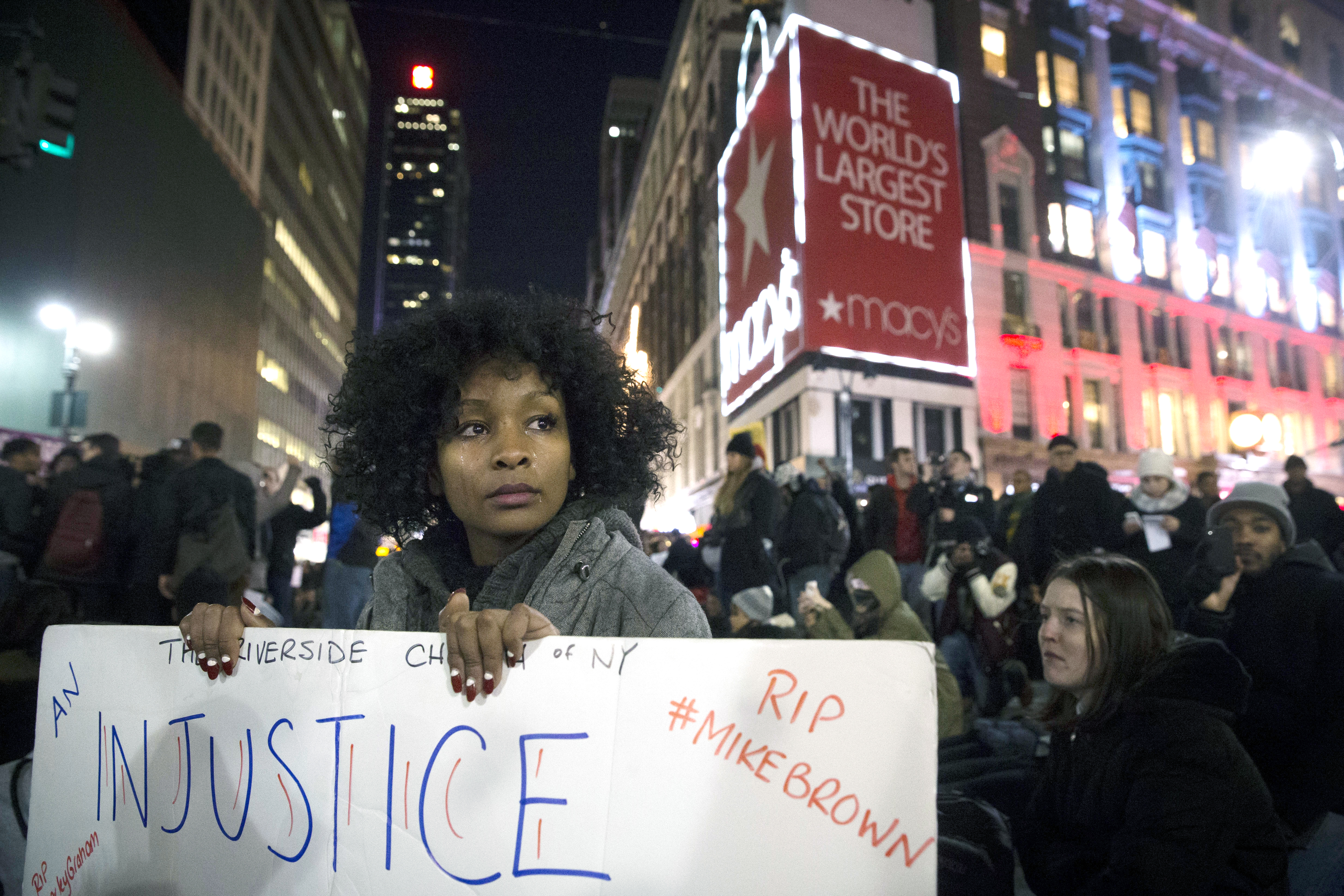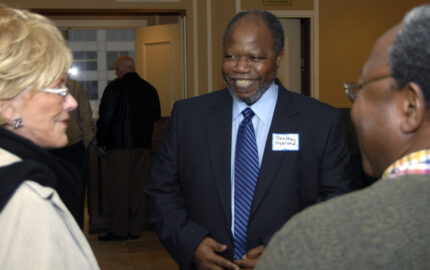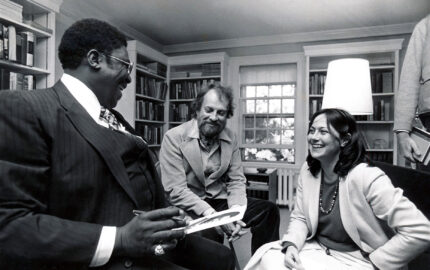Flashback one week: It’s December 3. I’m watching three commentators lead their communities in discussing a grand jury’s decision not to indict police officers in the death of a man from Staten Island named Eric Garner. They are journalists @FeministaJones and @ProfessorKim and actor/activist @KerryWashington tweeting links about protests hashtagged #ICantBreathe.
Watching this particular trio of brilliant voices, who happen to belong to African-American women, lead powerful social media discussions of the community-police conflict in America is a bittersweet moment for me. Sweet because each of these leaders has helped support my start-up BlogHer Inc., donating their time and voices to our mission to create opportunities for women in social media as a means to gain additional exposure and economic empowerment from their work. In return, we have supported them and promoted their work on BlogHer’s virtual, global stage.
Yet I am bitter too: Because I know these women would never have achieved their current profiles as serious commentators and activists if they weren’t able to go directly to their users via social media. Sadly, Nieman Reports’ own excellent data about women in newsrooms indicates that if women hadn’t finally gotten our own personal printing presses (hat-tip: Jay Rosen) or the open-source tools to start our own digital newsrooms, these voices would still be relegated to the lifestyle pages of newspapers and morning shows rather than elevated to international communities of women providing news, information, and advice. That is, if they broke through at all.
Ten years ago I committed myself to this cause as a labor of love; Today it’s big business—and a bigger opportunity for hard news. A month ago, on November 3, 2014, my co-founders, Elisa Camahort Page and Jory Des Jardins, and I announced the acquisition of BlogHer Inc. by SheKnows Media. Today our team is part of the leading women’s media community online, reaching 75.3 million unique monthly visitors and another 147 million social media fans and followers. According to comScore, that reach puts us ahead of AOL, Meredith, and The New York Times Digital in the women’s media lifestyle category.
BlogHer was a crazy idea we started in 2005 as a grassroots conference to answer a question we kept hearing from newsrooms: “Where are the women who blog?” I figured that after this labor of love, I’d go back to my work as a professional blogger and media strategist. Instead, we accidentally kick-started a community, made money, and started a partnership that birthed a company. BlogHer Inc. grew into the leading independent publisher of women bloggers and social media influencers, paying out $36 million in work-for-hire fees and advertising revenue to 5,700 contributors from 2009 to 2013. When President Barack Obama opened our annual conference for more than 5,000 women in New York City in 2012, my co-founder Elisa Camahort Page teared up. I didn’t cry myself until BlogHer’s board of directors supported our merger with SheKnows Media two years later, finally making it possible for us to map our social community leadership to Madison Avenue gloss and premium video.
Along the way, I evolved (often painfully), learning the kind of business lessons that leave stretch marks on one’s brain. My work as an early Web journalist and executive producer begat all-nighters as an entrepreneur, working with my co-founders to evangelize editorial and community moderation standards that allowed us to talk sponsors into supporting unknown women across the Internet. I bought a designer pantsuit (totally unnecessary), raised venture capital (essential to scale), and—ultimately—spent my days networking as CEO and publisher, the majority of my time working with advertisers and partners in pursuit of for-profit business models to underwrite quality content by grassroots audiences.
I loved it. Ironic, since I showed up for my Nieman Fellowship in 2001 as a Silicon Valley refugee. The start-ups for which I’d left CNN had been sold to Microsoft and GE, respectively. Despite my work with millions of women online at WebTV and Women.com, I was still told by male colleagues in engineering and journalism that women would never embrace technology or the Internet in large numbers. And at 34, my personal life was a shambles; I’d endured a custody battle in order to bring my 5-year-old with me to Harvard. Return to California? I was never going back.
Thank heavens Nieman curator Bob Giles took a chance on me in 2001. He just laughed at me when I felt (rather defensively, looking back) that the question behind The Harvard Crimsonpublishing an article about me was: why is the first Internet fellow from chick media. Bob then shooed me off to study business models, nascent Web practices, and online gaming. Slowly my synapses started firing. After the horror of 9/11 that year, one news reality was clear: Blogs were the ultimate digital publishing medium—gorgeous mural-like production values at the top, authentic community participation via comments below—if we could just maintain the dialogue with readers who cared enough about the topic.
So I returned to Silicon Valley after all. In the decade since founding BlogHer, I’ve watched words and photographs by anonymous women initialize national legislation (PostpartumProgress.org), lead the community of parents of children with special needs (Squidalicious.com), save lives (ViolenceUnsilenced.com), and free minds (ABelleInBrooklyn.com). Bestsellers and video stars were born at BlogHer.
Now, as chief community officer for SheKnows Media, my next frontier is to keep knitting together the conversations splintering across social media platforms into an articulate community dialogue. In the 17 years since I left the traditional newsroom, the road has risen to meet me: Women today use social media 41 percent more often than men do, and are the primary users and growth engines of every social juggernaut, from Facebook to Pinterest.
Hard-newsies, take heart: Don’t let dismissive stereotypes about mommy bloggers and duck faces fool you. As I type, I’m watching millions of women from Tokyo to Ferguson take to social media to voice their support for #ICantBreathe. Drawn in by the voices @FeministaJones, @ProfessorKim and @KerryWashington, I meet and follow a dozen more, including #BlackVoicesMatter, a movement started by a trio of women in social media I’ve never met.
Because of their writing, I will go to a newsstand in California and buy a print copy Newsday for its stunning photographs of the historic protest in Times Square. And I’ll re-commit to the cause: Until women’s voices are given equal billing in the newsrooms I love—from print to broadcast to digital—I’ll keep asking other journalists to help women build our own.



